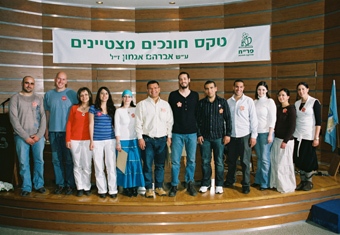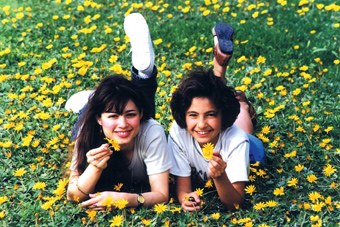“Perach,” the nationwide tutoring project initiated 34 years ago at the Weizmann Institute, will be one of eight organizations to be awarded the Israel Prize for a lifetime contribution to the state and society. The prize will be awarded on Israel’s 60th Independence Day.
Perach’s beginnings read like a fairy tale: On a winter’s night in 1972, an Institute mathematics student and his wife were driving home, when they saw two small figures trying to hitch a ride. Stopping to pick up the youngsters, they learned that the two were running away from the orphanage where they lived. The couple took the children into their home and, through living with them and raising them for the next two years, learned something about what it means to grow up underprivileged – lacking the educational advantages they themselves had enjoyed.
The student shared his insights with Prof. Haim Harari, then Dean of the Feinberg Graduate School, and together they decided to institute a tutoring project in which the graduate students in the school would work with underprivileged kids and help them with their study subjects, giving them the impetus to succeed in school, as well as in life. The first year, 50 children received tutoring through the project.
Today, Perach (Hebrew for “flower” and an acronym for “tutoring project”) programs are to be found in all universities and institutions of higher education across the country. It is administered under the aegis of the Davidson Institute of Science Education, which leads, coordinates and operates the educational programs of the Weizmann Institute. In 2006, over 32,000 mentors worked with some 60,000 children living in 217 different towns. The children come from all sectors: minorities, new immigrants and economically deprived families. The tutors, in return for spending two hours twice a week working with their charges, receive partial scholarships or other academic aid.
In addition, around 200,000 people visited one of the eight “Havayeda” (fun knowledge) interactive science centers run by the program, or took advantage of one of the enrichment centers, located mostly in peripheral areas, which make available to tutors and children games, books, videos, art supplies, computers and a quiet space in which to interact. ❙
Perach is supported by the Abraham and Sonia Rochlin Foundation; and the Enkin Family, Canada.

